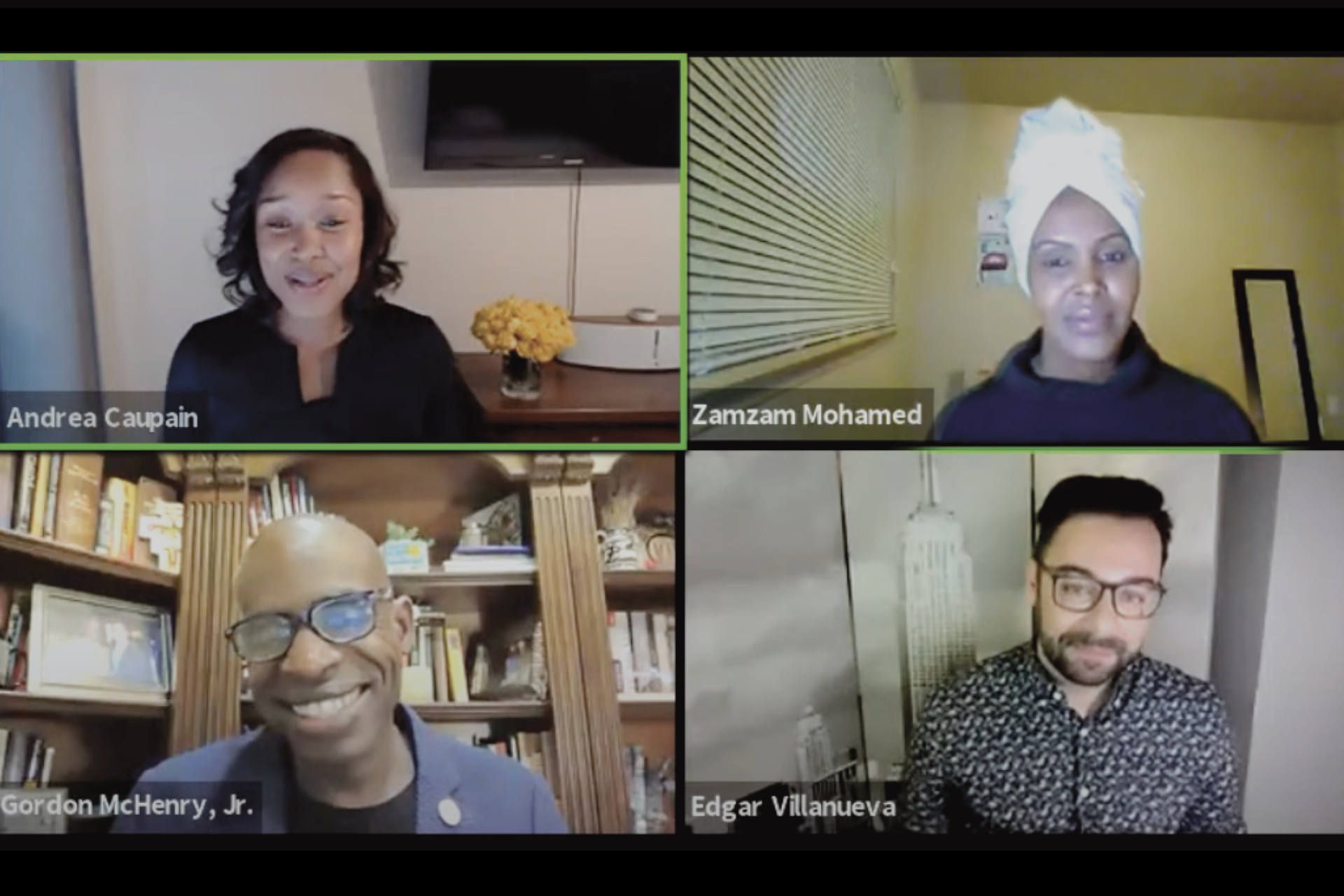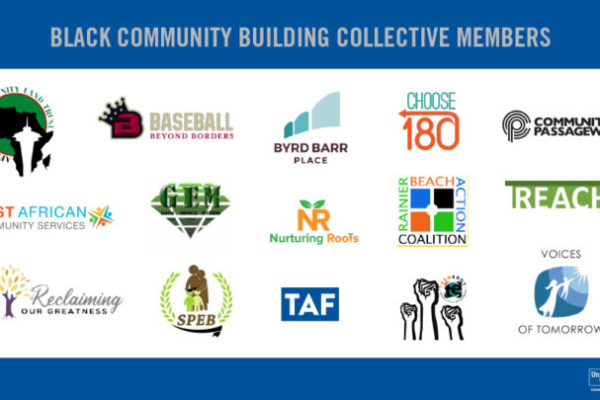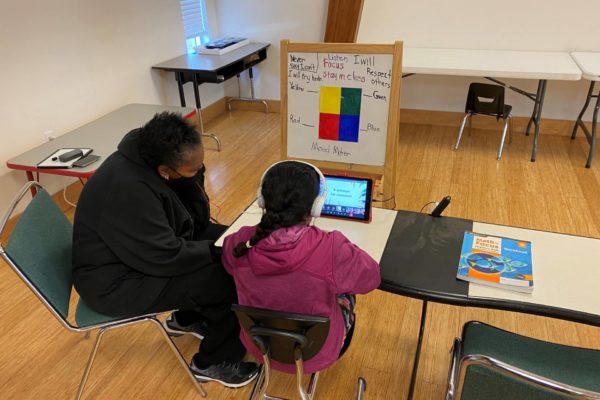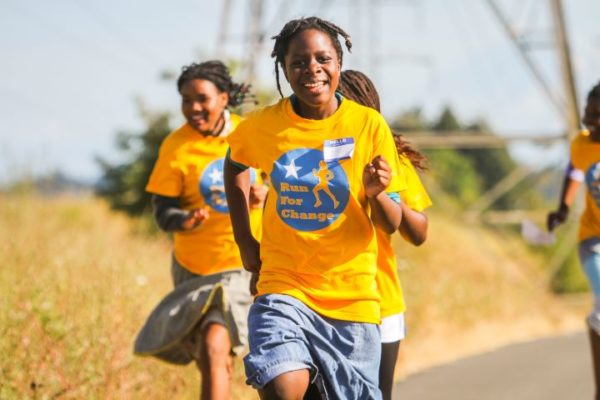Advancing Racial Equity Through Philanthropy
Edgar Villanueva, author of the book “Decolonizing Wealth,” called on philanthropies to prioritize funding for Black and Indigenous communities as part of the healing process for the traumatic genocide inflicted on them by hundreds of years of white supremacy and colonization.
Villanueva made the remarks during a “Philanthropy and Racial Equity” virtual panel held by United Way of King County. Gordon McHenry, Jr., president and CEO of the organization, moderated the conversation, which took place during the week of celebrations of Dr. Martin Luther King Jr.’s life and legacy. The panel was sponsored by Starbucks and Regence.
Villanueva and McHenry were joined by the leaders of two local, community-based organizations: Andrea Caupain Sanderson, CEO of Byrd Barr Place, which provides essential services for neighbors to help them build stability and self-sufficiency, and Zam Zam Mohamed, CEO and co-founder of Voices of Tomorrow, which works closely with community partners to eliminate racial inequities in the early learning system.
“When we prioritize giving to Black and Indigenous communities and other communities of color, we are, in essence, beginning to use money as medicine to restore that balance that’s been off due to the generations of wealth accumulation that we haven’t had access to,” Villanueva said.
“In order to begin to think about having equity, we have to be intentional about it. The white dominant culture pushes us to operate that way because the country was founded on ideas of inequality.”
Edgar Villanueva
Villanueva, who used to live in the Seattle area and considers the city his second home, said another helpful way to further the healing process would be for white leaders to apologize for the centuries of violence on Black, Indigenous and other people of color (BIPOC), even if they were not directly responsible for such actions.
“Words are powerful. Some may think a statement of apologizing can be superficial, and it can be if actions don’t follow,” Villanueva said. “Apologizing begins to acknowledge the reality of what has happened. In the U.S., we haven’t had an apology for slavery, broken treaties or genocide.”
Villanueva said the Los Angeles Times, for example, last year published a “beautiful” apology for propagating a white supremacist ideology throughout its history.
“Racial equity is not a zero-sum game where helping one group disadvantages another. It’s a benefit for all of us.”
Zam Zam Mohamed
Prompted by a question from an audience member, McHenry said individuals who want to help to undo racial injustice and inequity through philanthropy need to understand where their own wealth came from.
“Be intentional about understanding where you are, be intentional about understanding how you and your family got to where you are,” McHenry said. “And then customize, personalize your philanthropy, your community service in a way that addresses your individual or your familial situation.”
Echoing presidential Inauguration Day poet Amanda Gorman, Caupain Sanderson said it’s time for all to be brave to see and be “the light.”
“We grantees urge funders to not be transactional. Don’t just give money and then we hear from you a year later. Be in a relationship with us.”
Andrea Caupain Sanderson
“We should be brave enough to see and be the light. If you’re a foundation, you have to be it. Enough of waiting for another foundation to do it. If you’re an individual donor, you have to be it. Enough of waiting for someone else to be it,” Caupain Sanderson said. “Those of us on the ground, we have to be it. Enough of waiting for others to approach funders to change the paradigm. We’ve got to be it. This is it. It’s go time.”
The Pandemic and Racial Equity
The panelists agreed that the coronavirus pandemic has more fully exposed the existing racial inequities in the U.S.
“Regardless of your background, race or ethnicity, the pandemic impacted all of us,” Villanueva said. “It was the first time in my life where, as a community and as a nation, we all were experiencing that type of collective pain and grieving that is necessary for us to begin a collective healing process.”
Mohamed echoed the sentiment. “As Martin Luther King said, the time is always right to do the right thing. I think this is exactly the right time,” she said. “We are in an extreme crisis and the pandemic has escalated the disparity, especially around race. If we are going to make a shift and change, this is exactly what we need—continue this conversation.”
Mohamed said philanthropy needs to look at how to fund community-based organizations, especially amid the health crisis.
“They know what’s really going on. They know the issues. They have the tools, resources and programs that already work and that are very innovative,” she said.
Caupain Sanderson said she was optimistic about the needed changes brought on by COVID-19.
“The pandemic has really highlighted racial and ethnic disparities in American life,” she said. “But I say that even where we stand, while I think our future may still look uncertain and fragile, I think it’s a future that holds a promise for a better tomorrow.”







Comments
Brenda
February 18, 2021Was the session recorded? If so, would it be possible to get access to it? Even if it's just for a limited time, I would really appreciate it. Thanks!
Replies to Brenda
United Way of King County
February 18, 2021Hi Brenda, thanks for asking. Unfortunately video of the event is not available to share. We are sorry for the inconvenience.
United Way of King County
February 18, 2021Hi Brenda, thanks for asking. Unfortunately video of the event is not available to share. We are sorry for the inconvenience.